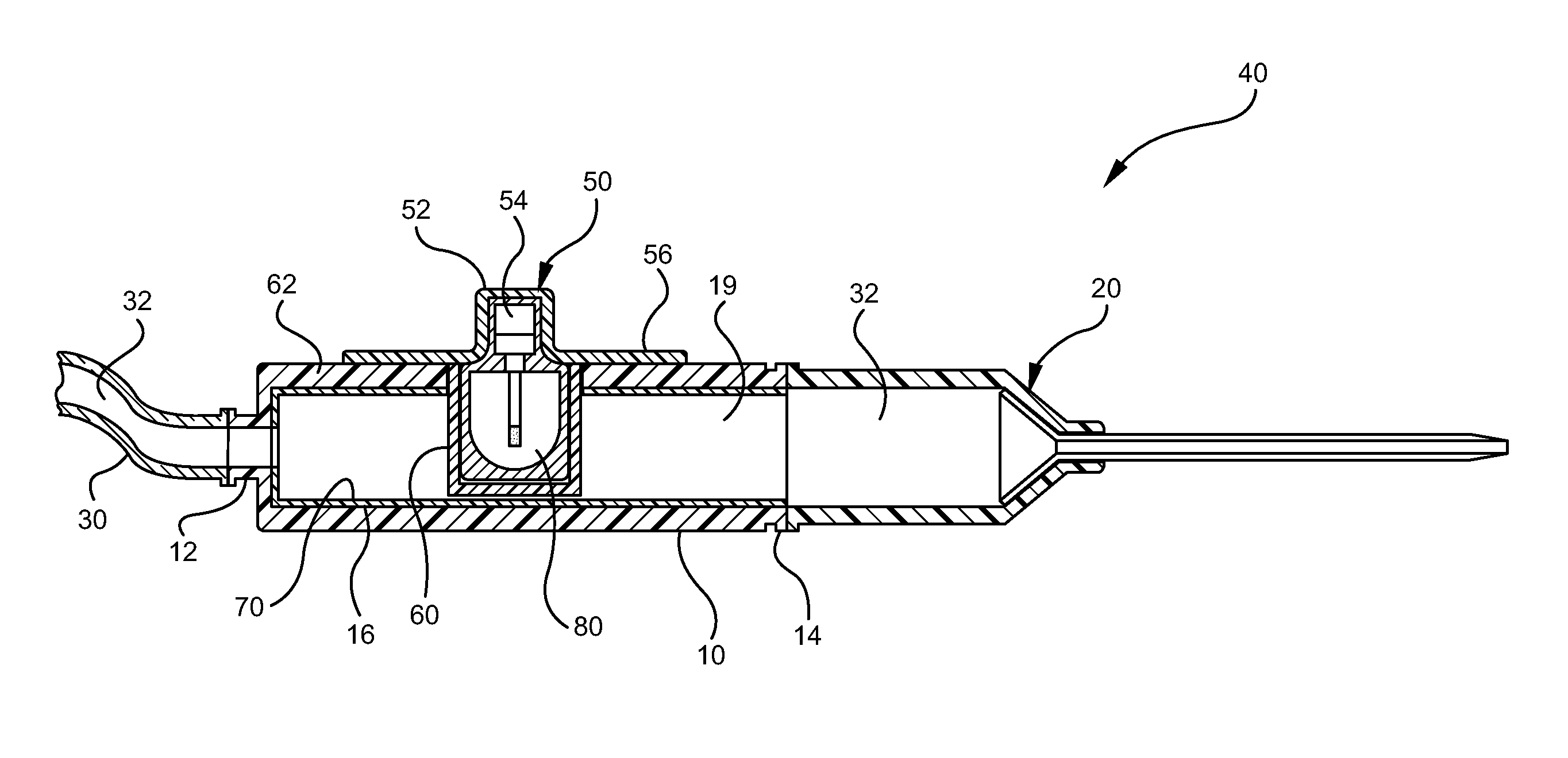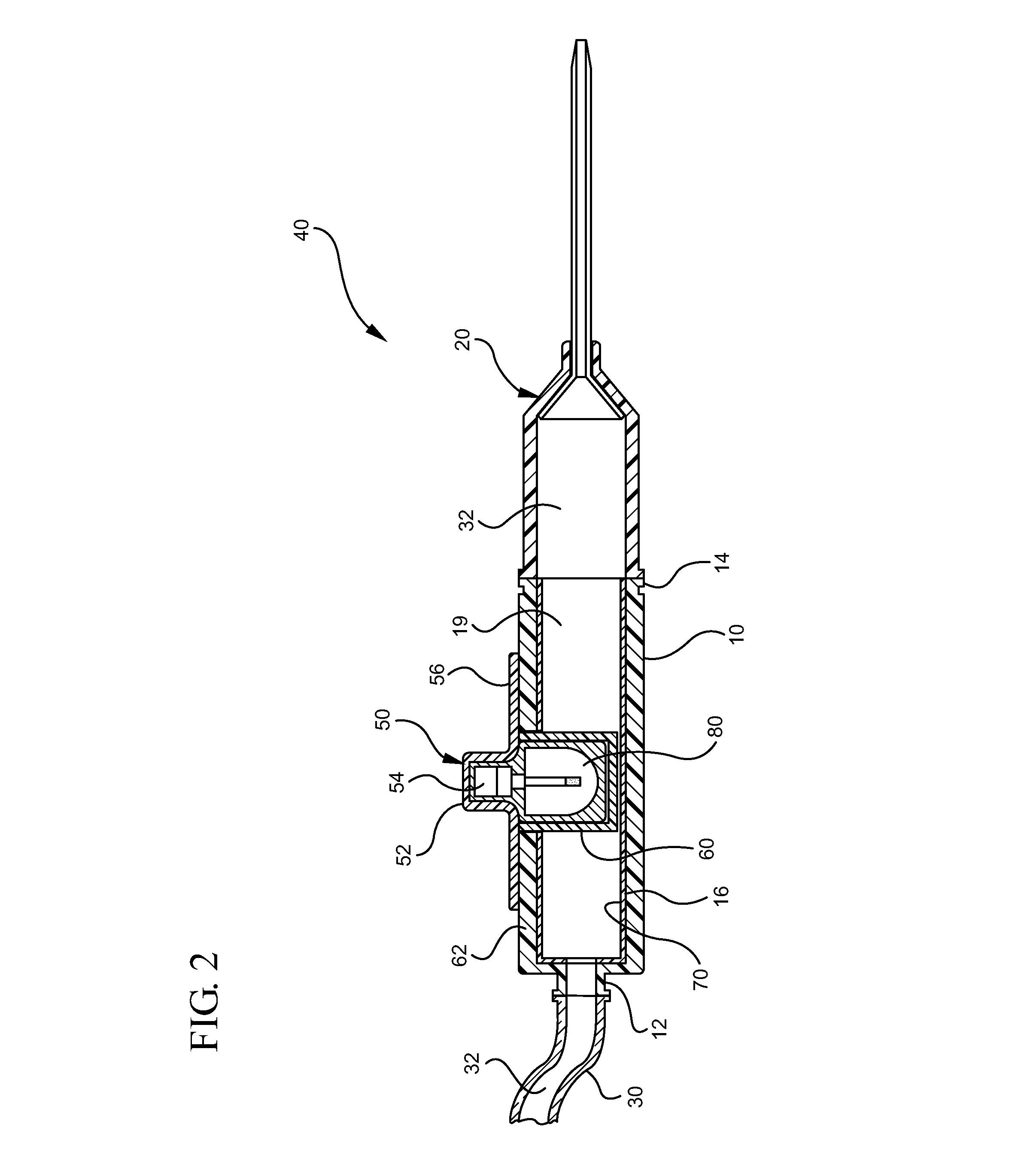UV-c antimicrobial device for intravenous therapy
a vascular access device and antimicrobial technology, applied in the field of intravenous therapy with antimicrobial vascular access devices, can solve the problems of significant morbidity and even mortality, increased risk of crbsis with catheter indwelling period, infection of vascular access devices, etc., and achieve the effect of reducing the risk and occurrence of crbsis
- Summary
- Abstract
- Description
- Claims
- Application Information
AI Technical Summary
Benefits of technology
Problems solved by technology
Method used
Image
Examples
Embodiment Construction
Definitions
[0028]As used herein the following terms gave the following meanings:
[0029]“Fluid Chamber” means any device having an interior volume or lumen through which an infusate passes during an infusion procedure, wherein the infusate is exposed to UV-C radiation while within the fluid chamber.
[0030]“UV-C” means ultraviolet light having a wavelength between about 200 nm and 280 nm.
[0031]“Biocidal Lamp” means a commercially available UV generating lamp that produces energy output in the range of about 200 nm to about 280 nm, with a preferred wavelength being about 255 nm.
[0032]“Vascular Access Device” means any device or combination of devices used to infuse an infusate into a patient.
[0033]“UV-C Transparent Material” means any material through which UV-C radiation or energy is permitted to pass.
[0034]“UV-C Opaque Material” means any material which blocks or otherwise prevents passage of UV-C radiation or energy.
[0035]“UV-C Reflective Material” means any material which reflects UV...
PUM
| Property | Measurement | Unit |
|---|---|---|
| Transparency | aaaaa | aaaaa |
| Reflection | aaaaa | aaaaa |
| Opacity | aaaaa | aaaaa |
Abstract
Description
Claims
Application Information
 Login to View More
Login to View More - R&D
- Intellectual Property
- Life Sciences
- Materials
- Tech Scout
- Unparalleled Data Quality
- Higher Quality Content
- 60% Fewer Hallucinations
Browse by: Latest US Patents, China's latest patents, Technical Efficacy Thesaurus, Application Domain, Technology Topic, Popular Technical Reports.
© 2025 PatSnap. All rights reserved.Legal|Privacy policy|Modern Slavery Act Transparency Statement|Sitemap|About US| Contact US: help@patsnap.com



